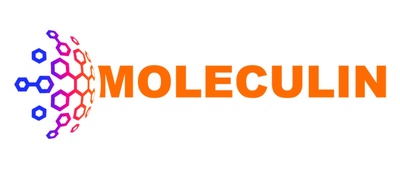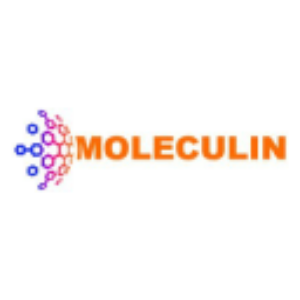Moleculin Announces Updated Preliminary Safety Data for Annamycin in Its Three Phase 1 Clinical Trials for Acute Myeloid Leukemia and Metastases of Soft Tissue Sarcoma
Moleculin Biotech, Inc. (Nasdaq: MBRX) has reported updated safety data from its Phase 1 trials of Annamycin, targeting acute myeloid leukemia (AML) and soft tissue sarcoma with lung metastases. An independent review confirmed no evidence of cardiotoxicity in 30 patients, supporting Annamycin's safety profile. Furthermore, less than 10% of patients treated with Annamycin experienced alopecia, significantly lower than the 65%-92% rate associated with doxorubicin, enhancing patient quality of life. The company's ongoing trials aim to establish the recommended Phase 2 doses while navigating recruitment challenges in certain regions.
- No evidence of cardiotoxicity confirmed in updated safety review.
- Less than 10% incidence of alopecia in Annamycin patients compared to 65%-92% with doxorubicin.
- Ongoing trials show potential for improved patient safety and quality of life.
- Slow patient recruitment reported in European AML trial.
HOUSTON, Jan. 18, 2022 /PRNewswire/ -- Moleculin Biotech, Inc., (Nasdaq: MBRX) ("Moleculin" or the "Company"), a clinical stage pharmaceutical company with a broad portfolio of drug candidates targeting highly resistant tumors and viruses, today reported that it has received an updated independent safety review of certain preliminary data for the first 30 patients in its three Phase 1 clinical trials with Annamycin targeting relapsed or refractory acute myeloid leukemia (AML) and the metastases of soft tissue sarcoma to the lungs (STS Lung), which concluded there was no evidence of cardiotoxicity. The review included analysis of ejection fraction, echo strain and certain troponin levels intended to assess potential for both acute and chronic heart damage. Additionally, the Company reported evidence that Annamycin may have a substantially lower incidence of alopecia (hair loss) than currently prescribed anthracyclines such as doxorubicin. Although
Two of the three clinical trials, as described more fully below, are ongoing and the data from those trials remain preliminary and are subject to change and future updates. The ongoing trials are both in the dose escalation phase (Phase 1) with the goal of determining the recommended Phase 2 dose (RP2D). In the course of this dose escalation, 19 of the 30 patients that have been reviewed to date have now been dosed above the lifetime maximum anthracycline limit currently set by the US Food and Drug Administration (FDA), further underscoring the potential for Annamycin to improve patient safety.
"Annamycin was designed to produce little to no cardiotoxicity, so we are pleased to see that this updated report continues to support that objective," commented Walter Klemp, Chairman and CEO of Moleculin. "This is a critical safety improvement in the field of anthracyclines since the risk of cardiotoxicity is the primary limitation in the use of currently prescribed anthracyclines. The apparent reduction in the incidence of hair loss is an added benefit that has the potential to significantly improve the quality of life for patients needing anthracycline therapy. We are also encouraged by the pace of recruitment for the STS Lung clinical trial and look forward to hopefully continuing the current pace of cohort updates. While the European AML trial has been slow in recruiting, we expect to announce an update regarding the next cohort in the first quarter of 2022."
An expert in assessing cardiotoxicity associated with chemotherapy at the Cleveland Clinic, the author of the independent review of Annamycin's cardiac safety data added, "Although anthracyclines continue to be a cornerstone of chemotherapy for many cancer indications, their use has been limited due to the threat of both acute and chronic cardiotoxicity. The availability of an anthracycline that eliminated this risk would be a major advancement in patient safety."
Dr. Sant Chawla, Director of the Sarcoma Oncology Center, Director of the Cancer Center of Southern California, and a Principal Investigator in Moleculin's STS Lung clinical trial concluded, "Patients often face difficult choices in an effort to balance the objectives of cancer therapy with quality of life. Having the ability to offer my patients a treatment alternative that substantially reduces the risk of alopecia would make Annamycin a valuable new alternative for patients who until now have had limited options."
Summary of Annamycin Clinical Trials
STS Lung Clinical Trial
The Phase 1b/2 study is an ongoing U.S. multi-center, open-label, single-arm study, which in its Phase 1b stage, will determine the maximum tolerated dose (MTD) or the recommended Phase 2 dose (RP2D) and safety of Annamycin. The Phase 2 portion of the study will explore the efficacy of Annamycin as a single agent for the treatment of subjects with STS with lung metastases for whom prior chemotherapy has failed, and for whom new chemotherapy is considered appropriate. A minimum of three subjects will be enrolled in each cohort of the Phase 1b portion of the study until an MTD is identified, after which there will be a recommendation for the RP2D based on an assessment of both safety and efficacy. Up to 25 subjects will be enrolled at the RP2D in Phase 2 to further evaluate efficacy. The Company has now opened enrollment in the fourth cohort of the Phase 1b portion of the study with dosing increased to 390 mg/m2. Three subjects minimum (6 maximum) for this and each subsequent dosing cohort will be enrolled until a maximum tolerated dose is identified. Therefore, up to 36 subjects may be enrolled in the Phase 1b portion of the study.
AML Europe Phase 1/2 Clinical Trial
The Phase 1/2 AML trial in Poland remains ongoing and is currently dosing patients at 240 mg/m2. Under the previous protocol transient elevated liver enzymes (AST and ALT) observed in two patients were initially deemed to be a dose limiting toxicity (DLT), however investigators believed this would inappropriately limit the potential for continued dose escalation. An amendment to the Annamycin clinical trial protocol was therefore undertaken, which allows for a change in the DLT criteria as it relates to transient grade 3 elevations and allows for the dosing of three additional patients in the 240 mg/m2 cohort. If no DLT (as defined by the new criteria) is experienced with these next three patients, the Company plans to escalate dosing in new cohorts by 30 mg/m2 instead of the 60 mg/m2 previously planned, and with a de-escalation of 15 mg/m2 at the DLT dose if future patients experience a DLT.
AML US Phase 1/2 Clinical Trial
The results from the Phase 1 portion of the Company's U.S. Phase 1/2 clinical trial of Annamycin for the treatment of AML met its primary endpoint and demonstrated a clean safety profile with no evidence of cardiotoxicity when delivered to patients at or below the lifetime maximum anthracycline dose established by the FDA. The Company is awaiting data from its European AML trial prior to continuing with the Phase 2 portion of this trial.
About Annamycin
Annamycin is the Company's next-generation anthracycline that has been shown in animal models to accumulate in the lungs at up to 30-fold the level of doxorubicin. Importantly, Annamycin has also demonstrated a lack of cardiotoxicity in multiple human clinical trials, including ongoing trials for the treatment of relapsed or refractory acute myeloid leukemia (AML) and soft tissue sarcoma (STS) lung metastases, and the Company believes that the use of Annamycin may not face the same usage limitations imposed on doxorubicin, one of the most common currently prescribed anthracyclines. Annamycin is currently in development for the treatment of AML and STS lung metastases and the Company believes it may have the potential to treat a number of additional indications.
Annamycin currently has Fast Track Status and Orphan Drug Designation from the U.S. Food and Drug Administration for the treatment of STS lung metastases, in addition to Orphan Drug Designation for the treatment of relapsed or refractory acute myeloid leukemia. For more information about the Phase 1b/2 study evaluating Annamycin for the treatment of STS lung metastases, please visit clinicaltrials.gov and reference identifier NCT04887298.
About Moleculin Biotech, Inc.
Moleculin Biotech, Inc. is a clinical stage pharmaceutical company focused on the development of a broad portfolio of drug candidates for the treatment of highly resistant tumors and viruses. The Company's lead program, Annamycin is a next-generation anthracycline designed to avoid multidrug resistance mechanisms with little to no cardiotoxicity. Annamycin is currently in development for the treatment of relapsed or refractory acute myeloid leukemia (AML) and soft tissue sarcoma (STS) lung metastases.
Additionally, the Company is developing WP1066, an Immune/Transcription Modulator capable of inhibiting p-STAT3 and other oncogenic transcription factors while also stimulating a natural immune response, targeting brain tumors, pancreatic and other cancers, and WP1220, an analog to WP1066, for the topical treatment of cutaneous T-cell lymphoma. Moleculin is also engaged in the development of a portfolio of antimetabolites, including WP1122 for the potential treatment of COVID-19 and other viruses, as well as cancer indications including brain tumors, pancreatic and other cancers.
For more information about the Company, please visit www.moleculin.com and connect on Twitter, LinkedIn and Facebook.
Forward-Looking Statements
Some of the statements in this release are forward-looking statements within the meaning of Section 27A of the Securities Act of 1933, Section 21E of the Securities Exchange Act of 1934 and the Private Securities Litigation Reform Act of 1995, which involve risks and uncertainties. Forward-looking statements in this press release include, without limitation, the ability of Annamycin to demonstrate safety and efficacy in patients, the ability of the STS lung metastases clinical trial to accelerate or continue the recruitment of patients and the timing of announcements related to updates for future cohorts. Although Moleculin believes that the expectations reflected in such forward-looking statements are reasonable as of the date made, expectations may prove to have been materially different from the results expressed or implied by such forward-looking statements. Moleculin has attempted to identify forward-looking statements by terminology including ''believes,'' ''estimates,'' ''anticipates,'' ''expects,'' ''plans,'' ''projects,'' ''intends,'' ''potential,'' ''may,'' ''could,'' ''might,'' ''will,'' ''should,'' ''approximately'' or other words that convey uncertainty of future events or outcomes to identify these forward-looking statements. These statements are only predictions and involve known and unknown risks, uncertainties, and other factors, including those discussed under Item 1A. "Risk Factors" in our most recently filed Form 10-K filed with the Securities and Exchange Commission ("SEC") and updated from time to time in our Form 10-Q filings and in our other public filings with the SEC. Any forward-looking statements contained in this release speak only as of its date. We undertake no obligation to update any forward-looking statements contained in this release to reflect events or circumstances occurring after its date or to reflect the occurrence of unanticipated events.
Investor Contact:
JTC Team, LLC
Jenene Thomas
(833) 475-8247
MBRX@jtcir.com
1 Gonzalez et al. 2018; DOXORUBICIN HYDROCHLORIDE [package insert]. New York, NJ: Pfizer Injectables; 2019
![]() View original content to download multimedia:https://www.prnewswire.com/news-releases/moleculin-announces-updated-preliminary-safety-data-for-annamycin-in-its-three-phase-1-clinical-trials-for-acute-myeloid-leukemia-and-metastases-of-soft-tissue-sarcoma-301462695.html
View original content to download multimedia:https://www.prnewswire.com/news-releases/moleculin-announces-updated-preliminary-safety-data-for-annamycin-in-its-three-phase-1-clinical-trials-for-acute-myeloid-leukemia-and-metastases-of-soft-tissue-sarcoma-301462695.html
SOURCE Moleculin Biotech, Inc.
FAQ
What were the latest results from Moleculin Biotech's Annamycin trials?
How does Annamycin compare to doxorubicin?
What is the status of the ongoing clinical trials for Annamycin?
What challenges is Moleculin Biotech facing with its trials?








